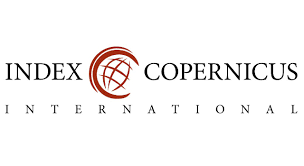The Role of Social Capital in the Development of Traditional Markets: An Islamic Economic Perspective
DOI:
https://doi.org/10.24090/ieibzawa.v1i1.786Abstract
This study aims to analyze the role of social capital on the development of traditional markets in the perspective of Islamic economics. This type of research uses field research with a qualitative approach. the informants of this research are 7 traders. Data collection techniques are done through observation, interviews and documentation. Data analysis techniques are carried out through 3 stages including data reduction, data presentation, and conclusion drawing. The results of this study indicate that social capital plays a role in the development of traditional markets which is shown through the implementation of 3 (three) indicators of social capital, including: First, adherence to norms by traders is said to be good, this is supported by the consistency of market administrators in enforcing existing regulations; Second, a good trader network is shown by harmonious relationships between traders and carrying out healthy trade transactions by applying healthy competition, Third, trust between traders is shown by carrying out healthy competition by sharing profits if the goods needed are not owned by other traders. While in the perspective of Islamic economics the role of social capital is measured through 4 (four) indicators, including: First, ummah wahidah is shown by the attitude and belief that the purpose of trading is to seek fortune which is one of worship; Second, Ukhuwah is shown by good relations between traders; Third, ta'awun is shown by the attitude of mutual assistance between traders if one trader does not have the goods needed by consumers then the trader who has the goods is willing to provide the goods with a profit-sharing agreement; Fourth, Ikhsan is shown by healthy competition between traders and taking turns waiting for merchandise when praying. Thus, through good social capital, traders are not just a collection of traders in the market but can become a social force consisting of the implementation of good norms, networks and trust between traders so that they can have an impact on the development of traditional markets.
Downloads
Published
How to Cite
Conference Proceedings Volume
Section
License
Copyright (c) 2023 Proceeding of International Conference on Islamic Economics, Islamic Banking, Zakah and Waqf

This work is licensed under a Creative Commons Attribution 4.0 International License.











